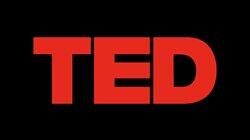TEDTalks - Season 8 / Year 2012

Season 8 / Year 2012

Episodes

Paul Gilding: The Earth is full

Peter Diamandis: Abundance is our future

Vijay Kumar: Robots that fly ... and cooperate

Susan Cain: The power of introverts

Bryan Stevenson: We need to talk about an injustice

Andrew Stanton: The clues to a great story

James Hansen: Why I must speak out about climate change

Jennifer Pahlka: Coding a better government

A TED speaker's worst nightmare

Jonathan Haidt: Religion, evolution, and the ecstasy of self-transcendence

Rob Reid: The $8 billion iPod

Brené Brown: Listening to shame

T. Boone Pickens: Let's transform energy -- with natural gas

Myshkin Ingawale: A blood test without bleeding

Taylor Wilson: Yup, I built a nuclear fusion reactor

Billy Collins: Everyday moments, caught in time

Donald Sadoway: The missing link to renewable energy

Regina Dugan: From mach-20 glider to humming bird drone

Leymah Gbowee: Unlock the intelligence, passion, greatness of girls

Ayah Bdeir: Building blocks that blink, beep and teach

Marco Tempest: A magical tale (with augmented reality)

Sherry Turkle: Connected, but alone?

Chip Kidd: Designing books is no laughing matter. OK, it is.

Jack Choi: On the virtual dissection table

Lucy McRae: How can technology transform the human body?

Frank Warren: Half a million secrets

Abigail Washburn: Building US-China relations ... by banjo

Atul Gawande: How do we heal medicine?

Drew Curtis: How I beat a patent troll

Christina Warinner: Tracking ancient diseases using ... plaque

Brian Greene: Is our universe the only universe?

Eduardo Paes: The 4 commandments of cities

Nancy Lublin: Texting that saves lives

Liz Diller: A giant bubble for debate

Amory Lovins: A 40-year plan for energy

Reuben Margolin: Sculpting waves in wood and time

Gary Kovacs: Tracking the trackers

Michael Tilson Thomas: Music and emotion through time

Joshua Foer: Feats of memory anyone can do

Renny Gleeson: 404, the story of a page not found

Tali Sharot: The optimism bias

Jean-Baptiste Michel: The mathematics of history

David Kelley: How to build your creative confidence

Carl Schoonover: How to look inside the brain

JR: One year of turning the world inside out

Nathan Wolfe: What's left to explore?

Philippe Petit: The journey across the high wire

Reggie Watts disorients you in the most entertaining way

Quixotic Fusion: Dancing with light

Terry Moore: Why is 'x' the unknown?

Damian Palin: Mining minerals from seawater

John Hodgman: Design, explained.

John Hockenberry: We are all designers

Sarah Parcak: Archeology from space

Marco Tempest: The electric rise and fall of Nikola Tesla

Peter Norvig: The 100,000-student classroom

Jared Ficklin: New ways to see music (with color! and fire!)

Gabriel Barcia-Colombo: Capturing memories in video art

Jon Ronson: Strange answers to the psychopath test

Thomas P. Campbell: Weaving narratives in museum galleries

Julie Burstein: 4 lessons in creativity

Steven Addis: A father-daughter bond, one photo at a time

Don Levy: A cinematic journey through visual effects

Cesar Kuriyama: One second every day

Wade Davis: Gorgeous photos of a backyard wilderness worth saving

Pam Warhurst: How we can eat our landscapes

Jonathan Trent: Energy from floating algae pods

Tristram Stuart: The global food waste scandal

Sarah-Jayne Blakemore: The mysterious workings of the adolescent brain

Julian Treasure: Why architects need to use their ears

Bandi Mbubi: Demand a fair trade cell phone

Ed Gavagan: A story about knots and surgeons

Andrew McAfee: Are droids taking our jobs?

Read Montague: What we're learning from 5,000 brains

Clay Shirky: How the Internet will (one day) transform government

John Lloyd: An animated tour of the invisible

Ben Goldacre: What doctors don't know about the drugs they prescribe

Bahia Shehab: A thousand times no

Aris Venetikidis: Making sense of maps

Vicki Arroyo: Let's prepare for our new climate

Amy Cuddy: Your body language shapes who you are

Robert Gupta: Between music and medicine

Jason McCue: Terrorism is a failed brand

Shimon Schocken: The self-organizing computer course

Tim Leberecht: 3 ways to (usefully) lose control of your brand

John Maeda: How art, technology and design inform creative leaders

Ruby Wax: What's so funny about mental illness?

Melissa Marshall: Talk nerdy to me

Play Maurizio Seracini: The secret lives of paintings

Eddie Obeng: Smart failure for a fast-changing world

John Wilbanks: Let's pool our medical data

Beau Lotto + Amy O'Toole: Science is for everyone, kids included

Heather Brooke: My battle to expose government corruption

Ryan Merkley: Online video -- annotated, remixed and popped

Pankaj Ghemawat: Actually, the world isn't flat

Lemn Sissay: A child of the state

Marco Tempest: A cyber-magic card trick like no other

Rory Stewart: Why democracy matters

Sanjay Pradhan: How open data is changing international aid

Emma Teeling: The secret of the bat genome

Faith Jegede: What I've learned from my autistic brothers

Matt Killingsworth: Want to be happier? Stay in the moment

Jake Wood: A new mission for veterans -- disaster relief

Gary Greenberg: The beautiful nano details of our world

Jeff Hancock: The future of lying

Julie Burstein: 4 lessons in creativity

Arunachalam Muruganantham: How I started a sanitary napkin revolution!

Hannah Brencher: Love letters to strangers

Leah Buechley: How to

David Binder: The arts festival revolution

Daphne Bavelier: Your brain on video games

Amos Winter: The cheap all-terrain wheelchair

Sleepy Man Banjo Boys: Teen wonders play bluegrass

Candy Chang: Before I die I want to...

Ernesto Sirolli: Want to help someone? Shut up and listen!

Jonas Eliasson: How to solve traffic jams

Janine Shepherd: A broken body isn't a broken person

Munir Virani: Why I love vultures

Paolo Cardini: Forget multitasking, try monotasking

Bobby Ghosh: Why global jihad is losing

Ludwick Marishane: A bath without water

Jeff Smith: Lessons in business ... from prison

Nina Tandon: Could tissue engineering mean personalized medicine?

Lemon Andersen: Please don't take my Air Jordans

Ellen 't Hoen: Pool medical patents, save lives

Markham Nolan: How to separate fact and fiction online

Maz Jobrani: A Saudi, an Indian and an Iranian walk into a Qatari bar ...

Marcus Byrne: The dance of the dung beetle

Ben Saunders: Why bother leaving the house?

Robin Chase: Excuse me, may I rent your car?

Molly Crockett: Beware neuro-bunk

Steven Addis: A father-daughter bond, one photo at a time

Adam Davidson: What we learned from teetering on the fiscal cliff

Ronny Edry: Israel and Iran: A love story?

Chris Gerdes: The future race car — 150mph, and no driver

Margaret Heffernan: Dare to Disagree
Recently Updated Shows

The Creep Tapes
Based on a collection of videotapes in the secret vault of the world's deadliest and most socially uncomfortable serial killer, who hires his victims to film him for the day under false pretenses, each episode exposes a new victim from one of the fabled 'Creep Tapes'.

America's Funniest Home Videos
ABC's longest-running primetime entertainment show, America's Funniest Home Videos, returns for season 36 this fall with the same mission -- giving families something genuinely funny to enjoy together on Sunday nights.
"AFV," the longest-running primetime entertainment show in ABC history, returns for season 36 with the same mission - to provide viewers with hysterical moments that fly by at a dizzying pace.

The Real Housewives of Potomac
Just up the river from our nation's capital lies a hidden gem—Potomac, Maryland. Its rolling hills, gated mansions, sophisticated prep schools, and exclusive country clubs all serve to keep the area invitation-only. Sprinkled throughout this community are a handful of old-line, wealthy African-American families who have historically broken racial barriers to provide a life of privilege for their children. The Real Housewives of Potomac follows the upscale lives of six intriguing, well-to-do women: Gizelle Bryant, Katie Rost, Karen Huger, Charrisse Jackson-Jordan, Robyn Dixon, and Ashley Darby, all of whom have fought for their places in this society by way of legacy or marriage. In a town where entry is granted only through class, pedigree, and lineage, how far will these ladies go to secure their spot at the top of this prestigious circle?

The Traitors Canada
Follow a group of contestants – including some familiar faces – who live together as they complete a series of challenges with the goal of earning a cash prize. The catch? Some of the contestants are traitors who will attempt to deceive and manipulate their way to the prize instead of sharing it amongst the group. In this psychological adventure will the traitors be unmasked in time?
